CMN 480
Applied Research Methods I

1. Course Description
As part of their careers, graduates in Professional Communication will be asked to conduct research projects in their workplaces. The objective of this capstone course is to provide students with the experience of designing such projects. The course will focus on research design and on data-gathering techniques such as interviewing, document collection, observation, and surveys. Students will develop research projects related to a specific organization or workplace.
Last Revised
Prerequisites
CMN 315 or CMN 324. Note: This course is available only to Professional Communication students
Delivery
Lab: 3 hours
2. Course Objectives & Learning Outcomes
- To demonstrate the ability to critically analyze organizations
- To conduct research into issues in professional communication
- To demonstrate ethical awareness
- To conduct original research into organizations subject to appropriate ethics approval
- To write a comprehensive report
- To write a proposal for a project to be completed in CMN490 – Research Methods in ProCom II
3. Topics Covered
- Current issues in professional communication
- Analyzing organizational communication needs
- Research methods: surveys, focus groups, interviews
- Designing, evaluating, and managing a strategic communication plan
- Report and proposal writing
4. Teaching Method
Workshops and Lectures
Teaching will be conducted by interactive lectures, case studies, and in-class and online activities.
Graded Assignments
Evaluation will include at least three written and one oral project.
5. Course Materials
Mahoney, James (2016). Strategic Communication: Campaign Planning. Second Edition. Oxford University Press. ISBN-13: 9780190303761
Additional material (readings/podcasts/websites) will be assigned and available online.
6. Policy
6.1 University Policies
Students are required to adhere to all applicable university policies found in their Online course shell in D2L and the Course Outline Policies.
6.2 Print and Digital Copying Guidelines:
Toronto Metropolitan University complies with Canada’s Copyright Act which protects both creators/owners and users of copyrighted materials. Students should familiarize themselves with TMU Copyright policies and procedures, and contact the Copyright and Scholarly Engagement Librarian at copyrt@torontomu.ca for questions, concerns and clarification of the copyright rules.
6.3 Turnitin.com
Turnitin.com is a plagiarism prevention and detection service to which Toronto Metropolitan University subscribes. It is a tool that helps instructors determine the similarity between student work and the work of other students who have submitted papers to the site (at any university), Internet sources, and a wide range of books, journals, and other publications. While it does not contain all possible sources, it gives instructors some assurance that students’ work is their own. No decisions are made by the service; it generates an “originality report,” which instructors must evaluate to judge whether something is plagiarized.
Students agree by taking this course that their written work will be subject to submission for textual similarity review to Turnitin.com. All submitted papers will be included as source documents in the Turnitin.com reference database solely for the purpose of comparing the similarity of such papers. Use of the Turnitin.com service is subject to the terms-of-use agreement posted on the Turnitin.com website. Students who do not want their work submitted to this plagiarism detection service must, by the end of the second week of class, consult with their instructor to make alternative arrangements. Even when an instructor has not indicated that a plagiarism detection service will be used, or when a student has opted out of the plagiarism detection service, if the instructor has reason to suspect that an individual piece of work has been plagiarized, the instructor is permitted to submit that work in a non-identifying way to any plagiarism detection service.
6.4 Email Communication
Toronto Metropolitan University requires that any official or formal email communication from students be sent from their official Toronto Metropolitan University electronic accounts.
6.5 Video and Audio Recording
No video or audio recording is permitted in class without the express permission of the instructor.
7. Learning Management System
Toronto Metropolitan University supports Brightspace by D2L as its official Learning Management System. University Policies governing Brightspace have been documented at the Courses @ Toronto Metropolitan University Privacy and Security website.

